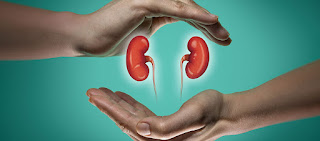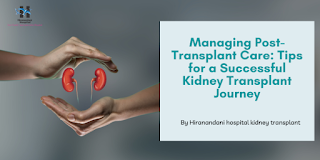Latest Advances in Renal Transplantation: Improving Outcomes and Future Innovations
Renal transplantation has positively impacted how patients cope with end-stage renal disease, improving the lives of countless people. Dr. Sujit Chatterjee CEO of Hiranandani Hospital tells us that a healthy and satisfying life can be regained by them with this opportunity. The field of renal transplantation has been propelled forward by advancements in medical science and technology over time. As a consequence, there have been better results and improved care for patients. Renal transplantation has made significant progress in recent times, let us look at some of them and take a glimpse of the medical marvels that have come out in recent years 1. Laparoscopic Donor Nephrectomy: Minimally Invasive Approach The field of kidney transplantation has been transformed by the cutting-edge surgical procedure known as laparoscopic donor nephrectomy. This minimally invasive procedure involves removing a healthy kidney from a living donor through small incisions. Expert Dr, Sujit




